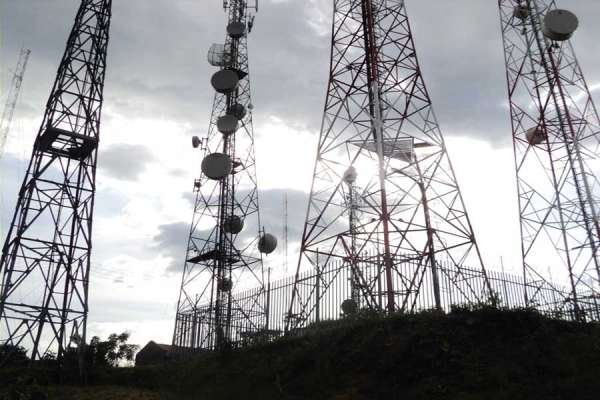The Federal Government has raised the alarm over activities of vandals on telecommunications infrastructure in the country, saying the ugly trend was responsible for the high cost of services charged subscribers by the operators.
The Executive Vice Chairman and Chief Executive Officer of the Nigerian Communications Commission, NCC, Prof. Umar Garba Danbatta, who disclosed this at a civil society round table on the digital economy, in Abuja, lamented that subscribers bear the consequences of vandals on facilities of network providers through a tariff on voice calls and data.
The round table on the digital economy with the theme, “maximizing the potential of digital entrepreneurship for youth empowerment and self-reliance”, was organized by Civil Society Groups for Good Governance, CSGGG, and held at the Army Resource Centre, Abuja.
Pof. Danbatta also said fixed broadband infrastructure gaps, right of way issues, multiple regulation and taxation, forex scarcity, electricity and duplication of functions are the other challenges that contributed to the encumbrances bore by telecoms consumers.
Represented by Director, Digital Economy Department, Engr. A. K. Nwaulune, the NCC boss said, the vandalisation of telecoms infrastructure create costs and those costs are going to be advance by consumers.
According to him, “The important thing that I want you to know is that the vandalization create costs, and those costs are going to be advanced by you.
“So you are just getting trouble for yourself by vandalism because you go and cut fibre and you can sell fibre because it’s stolen property, you’re not going to even sell it at the market value because it’s tokunbo that you are selling.
“And you’re creating trouble for others. So we want you to help us market the fact that the more you vandalize, the higher the cost, and the more the tariff more the charges that you pay.”
Speaking on the merits of the digital economy, Prof. Danbatta noted that “Economic diversification can greatly be achieved, just as its efforts at social prosperity and integration are clearly obvious.”
Digital economy, “Requires Home Grown innovative digital Skill, targeted to the peculiarities of the Nigerian Market and Populace and requires a Digitally Literate Citizenry who can take advantage of these innovative solutions.
He noted that “It requires the Digital Infrastructure on which the Training/Skills Acquisition will be provided, and on which the innovative solutions can be deployed.
“The Commission, as a coordinator for Digital Economy for the Communications Industry, continues to strive to ensure all necessary projects, approvals, regulatory amendments and Stakeholder collaboration required to achieve the goal, are carried out. “
On progress recorded in the sector, he said, “The Telecoms sector in Nigeria has witnessed significant and unprecedented growth as Nigeria currently has 187,805,237 mobile lines, and 98.39% teledensity.
“As at July 2021, Broadband Subscription of 75,952,406 and Penetration of 39.79 %
“The telecoms Sector has enabled economic transformation in various sectors of Nigeria’s economy; Banking, HealthCare, Commerce, Education, Agriculture etc. The Digital Economy offers Nigeria the opportunity to grow and diversify its economy from the overdependence on oil & gas.”
He said, “Digital economy; Digital Economy refers to the full range of economic, social and cultural activities supported by the Internet and related emerging information and communications technologies.
Three components of the digital economy are Infrastructure, Innovative services and entrepreneurship products and Digital Skills.
In his remarks, the President of the Civil Society Groups for Good Governance, CSGGG, Mr Konrad Ogaku Dominic, explained that the major reason for convening the round table was to create awareness and to inform the average unemployed youth that the dynamics around job creation and employment has changed.
Mr. Dominic reasoned that to this ends, there’s a need to update, there’s a need to set a different trajectory as to how we can talk about the issue of unemployment, and employability.
According to him, “And I feel that as civil society, our role is very simple, is to be able to sensitize greater winners support government, and ensure that we expand the horizon for other people to profit from. And that’s exactly what we are trying to achieve with this round table.





















